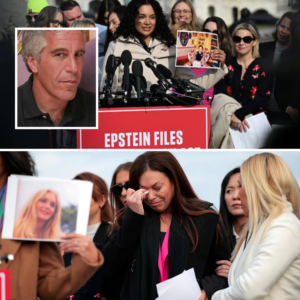Meta’s survival depends on what’s happening in Judge James Boasberg’s courtroom. Here’s what just went down.

Meta CEO Mark Zuckerberg testifies during a Senate Judiciary Committee hearing entitled “Big Tech and the Online Child Sexual Exploitation Crisis” on Capitol Hill, Jan. 31, 2024. | Francis Chung/POLITICO
Meta CEO Mark Zuckerberg spent hours in a Washington courtroom this week, answering questions about business decisions he made more than a decade ago — and whether the social media empire he now oversees is a monopoly.
In an effort to break up Meta, government lawyers used old emails and documents to portray Zuckerberg as a nervous executive on the attack, buying up competitors Instagram and WhatsApp in 2012 and 2014, respectively, before they could displace his crown jewel, Facebook.
But Zuckerberg and Meta’s attorneys pushed back on that narrative in court. And in a statement, the company said that the “weak lawsuit against Meta ignores reality,” including the competition for users’ attention that Meta faces from TikTok, YouTube and other platforms.
Losing the high-stakes lawsuit, which was brought by the Federal Trade Commission, could ultimately lead to the Silicon Valley behemoth being forced to cleave off Instagram and WhatsApp — a complex and messy unwinding that would upend the trillion-dollar giant.
But U.S. District Judge James Boasberg sounded some notes of skepticism. Are they strong enough to save the company? Former Republican FTC Chair Bill Kovacic, who now leads the Competition Law Center at George Washington University, unpacked Meta’s week in court on the POLITICO Tech podcast.
The following excerpt of the conversation has been edited for length and clarity. Listen to the full interview on POLITICO Tech, available on Apple, Spotify, Audible or your preferred podcast player.
The first few days of this trial have really been about trying to get inside the head of CEO Mark Zuckerberg at the time he bought Instagram and WhatsApp, mostly based on emails that were written more than a decade ago. What do you think those messages reveal?

They reveal a mix of motives. One of the objectives that Zuckerberg’s emails and correspondence lays out is, I think, a genuine desire to improve his platform and to improve the offerings to users. But in parallel to that, there is an awareness expressed fairly vividly that Instagram, in particular, might evolve in a way that would become a threat to Facebook at the time. That there would be a migration, inevitably, and it would happen fast.
I suppose a key question in the court’s mind is going to be which one predominates. What was the principal aim that the company had in mind in carrying out the acquisitions? And another question for the court is, is Meta’s state of mind in 2012 relevant to deciding the case today? Part of what I think Mark Zuckerberg has been arguing in these first few days is, “We did a good job with them. If the government’s thought was that we were trying to bury them. And to take them off the field so that they would not disrupt at all, we didn’t do that.”
The FTC argues that Meta has a monopoly in the market that they refer to as “personal social networking” and that its only real competitors are Snapchat and a smaller app called MeWe. Meta’s lawyer is claiming that this definition is way too narrow. Do you think the lawyer has a point?
Meta is going to have a fruitful issue here to work with. Judge James Boasberg, in November of last year, wrote a decision in which he leads off on the second page with a caution saying, “Just because, FTC, you have lived to fight another day in this matter does not mean you’re going to prevail.” And the issues that he comes back to through the opinion include the proper definition of the market.
So the judge clearly has a lot of questions about that. And, I suspect, Meta will take a lot of care to try and reinforce those doubts. To say that even if these other services are not perfect substitutes for the personal social network service that we offer, they’re pretty damn good alternatives and the overlap is significant enough, and that overlap is changing over time in ways that you can’t draw a confident conclusion that Meta has monopoly power in the niche that the FTC is trying lay out.
The question on everybody’s mind is whether this could lead to Meta being broken up. If you were a gambling man, what odds would you be betting on?
I guess I’d at least bet the price of a double espresso, maybe with a muffin thrown in, too. So high-stakes gambling, to be sure. But, if Judge Boasberg is sold on the FTC’s theory of harm and ultimately says, “I had doubts, but they convinced me. I wasn’t seeing it, but they helped me see it,” that elevates a divestiture dramatically up the list of possibilities.
The real issue will be whether he issues an opinion that says, “You sold me on some of this, but it’s a really close call. And I am not so persuaded that the competitive harm was so dramatic that I have to take this drastic step.”
If you imagine it being a match in which we’re counting goals, and the match is an 8-0 win for the plaintiff, the judge is probably more inclined to impose a more dramatic remedy. But if it’s a close match, I think judges have been more inclined to say, “Do I really need this form of more dramatic market intervention to cure the problem?” In that instance, there’s more of a willingness to look for other solutions.
In the lead up to this trial, Mark Zuckerberg made a number of trips to the White House and the Wall Street Journal reported that in those meetings he lobbied President Trump for a settlement in this case. Could Trump realistically step in before this trial is over?
Indeed, he could. Would he? I think we see conflicting impulses. One concern that the president might have is that this kind of dramatic intervention is not necessary or helpful. That a big-bang remedy is not the right way to do things [and] that Meta is making a number of accommodating gestures and will still make more.
On the other hand, we know that [FTC Chair] Andrew Ferguson was in the White House, too, and met with the president. And I suspect part of the conversation had to do with more conventional antitrust theories of harm, what the market might have looked at had it not been for these acquisitions. I suspect the discussion also focused on the kinds of deeply felt concerns that the president has about whether or not Meta helped turn the election against him in 2020. That the reason to be concerned about their size and market presence, their dominance, is that they dominate not only the economic sphere, they have an outsized influence in the political sphere. And they had it and they used it against you. “And don’t forget that, Mr. President.” And to the extent that you want a little bit of retribution here, here’s your chance to get it.




